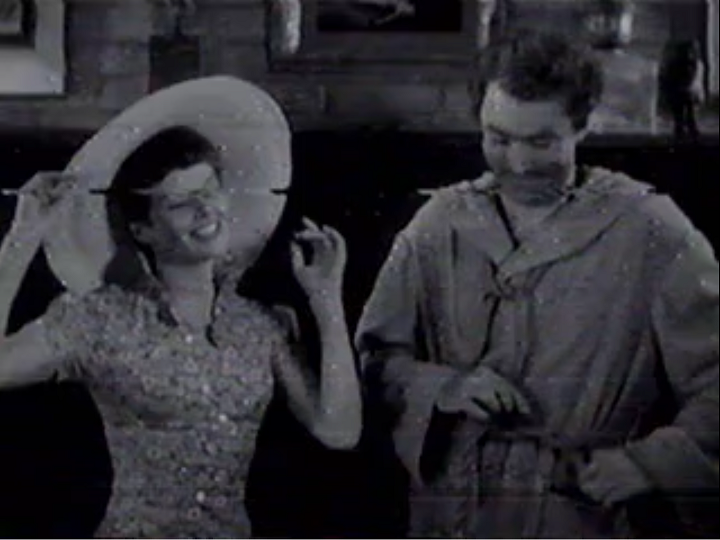The Writers Guild of America’s new contract tilts streamers toward shelving content, but there’s a solution emerging.
So the solution is ad supported services, if I understood the takeaway of the article? Because that’s no solution I’m willing to participate in.
you could mix the two concepts… ad-free subscription service and residuals/licensing based on viewership.
it’s not like the subscription services don’t have the metrics to take a piece of the subscription money coming in, and divvy it up based on total views each title gets each month.
Yeah, that would probably level everything out, but I’m guessing that these subscription services are trying to avoid becoming the open book that Hollywood is. If you’re visibly the 4th most successful streaming service, customers might start to bandwagon.
Wasn’t LA Times so anti-union it got firebombed in 1910?
123 years is a long time in publishing,
When Norman resigned as publisher in 1960 to devote full attention to the corporation, his son Otis Chandler took over in that position.
When Otis Chandler became publisher of the Times, the paper’s writing, editing, and editorial policy underwent a striking metamorphosis, noticeably under editor Nick Williams (1958–71). Moving from its tradition of promoting conservative causes, the Times emphasized a more balanced and comprehensive approach to journalism. This was accomplished in large part by upgrading and enlarging its staff, opening new Times bureaus elsewhere in the United States and abroad, and developing thorough coverage of important events.
This reads to me more as going from openly conservative to “I don’t talk about politics”.
Unless you can show it moving explicitly left, I think it’s still fair to tag the business as ant-union and with a bone to pick in how it lays out its reporting.
Unless you can show it moving explicitly left
From the media bais checker:
LA Times (Los Angeles Times) – Bias and Credibility
These media sources have a slight to moderate liberal bias. They often publish factual information that utilizes loaded words (wording that attempts to influence an audience by appealing to emotion or stereotypes) to favor liberal causes. These sources are generally trustworthy for information but may require further investigation. See all Left-Center sources.
Overall, we rate the LA Times Left-Center Biased based on editorial positions that favor the left and High for factual reporting due to a clean fact-check record.Bias Rating: LEFT-CENTER
Factual Reporting: HIGH
Country: USA
Press Freedom Rank: MOSTLY FREE
Media Type: Newspaper
Traffic/Popularity: High Traffic
MBFC Credibility Rating: HIGH CREDIBILITYThis is awesome. I did not know there was a ‘media bais checker’.
It is pretty good.
Anytime I see a news story from a site I do not recognise, I see what this site has to say about them.
I treat them like a snopes for news publishers.
I heard their old CEO made some problematic tweets back in 1868 too. We should boycott!
Yeah, I remember it it like it was just yesterday! 113 years ago the Republicans were the progressives. A lot can change in that time.
I think many of them may think about how they want to go about things. They see the fragmentation is not working for them except for maybe the big names like netflix and disney. It looks to me like amazon wants to get more away from original shows and position themselves as the place that gets other streaming services content second somewhere down the line.
There’s a reason I abandoned the mainstream video streaming platforms years ago and really only subscribe to smaller ones that make all their own content. Much better experience imo even though I don’t get normal shows that way
Much happier these days on my ship for those.
I think there’s an argument to be made that the platforms have been pouring in so much money trying to win the streaming wars that they haven’t considered the fact of whether the income from subscriptions is actually sufficient to fund this level of content creation spread across so many platforms.
Consumer will only subscribe to so many services, and while I don’t know that equilibrium is, I’m pretty sure it’s lower than what we have right now.
I feel like good government has a role in preventing this. Is access to the new Willow TV series of moral imperative? Perhaps not. But should Disney, or anyone else, be allowed to produce content for clicks with the express purpose of disintegrating it 8 weeks later? I think the audience, writers, cast, crew, and creative executives would all agree that’s a no. I think only the accountants would say yes to this question.
This is the same reason that copyright exists, and why Disney has fought so hard against it all these years. Works of significant cultural value cannot be entrusted to the hands of a profit seeking cadre. And civil society has an important role in preventing that from happening. Obviously the 150 year, or whatever it is, copyright expiration is not going to save us here. But this is a very analogous fight. I think legislation has got a role to play in it.








